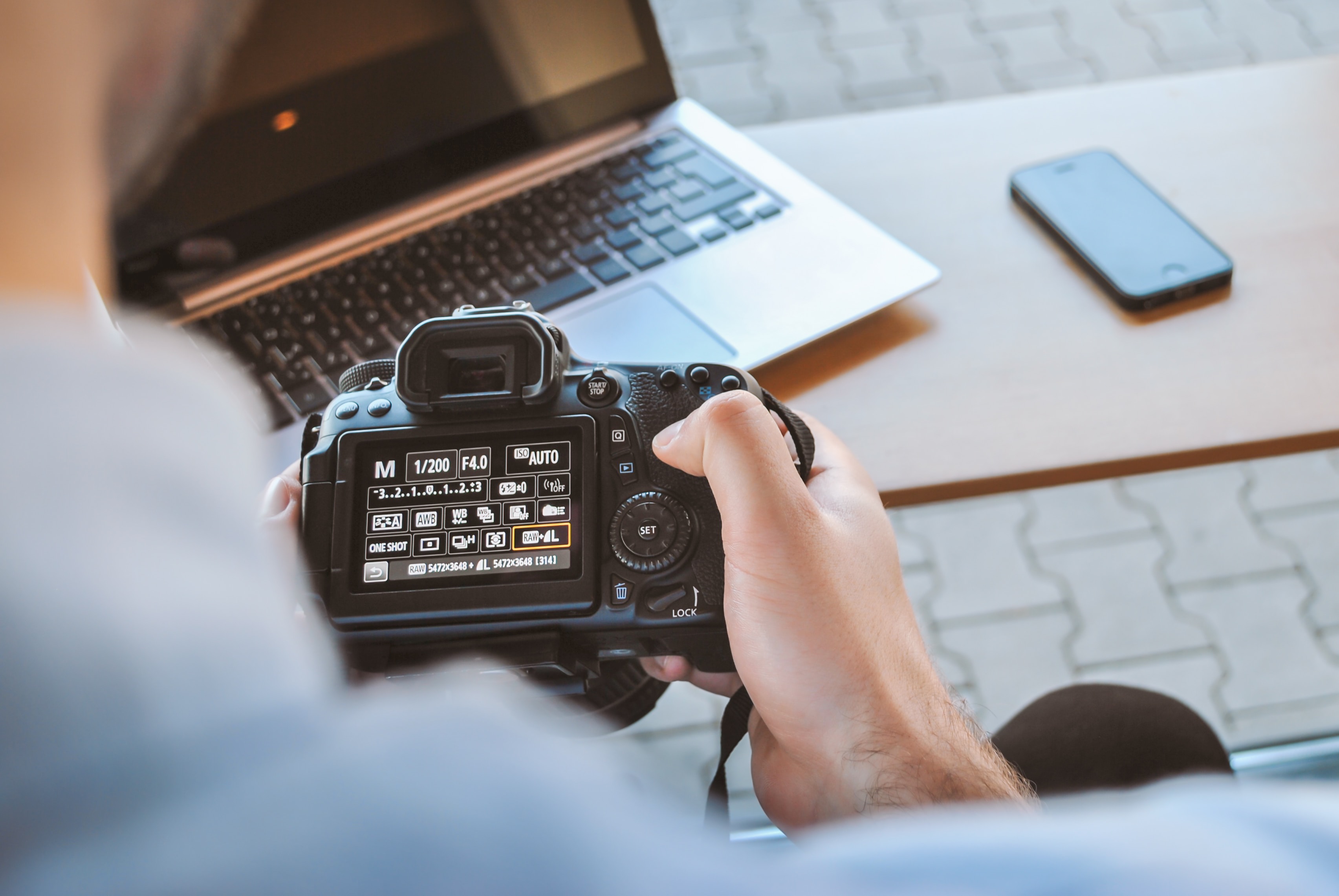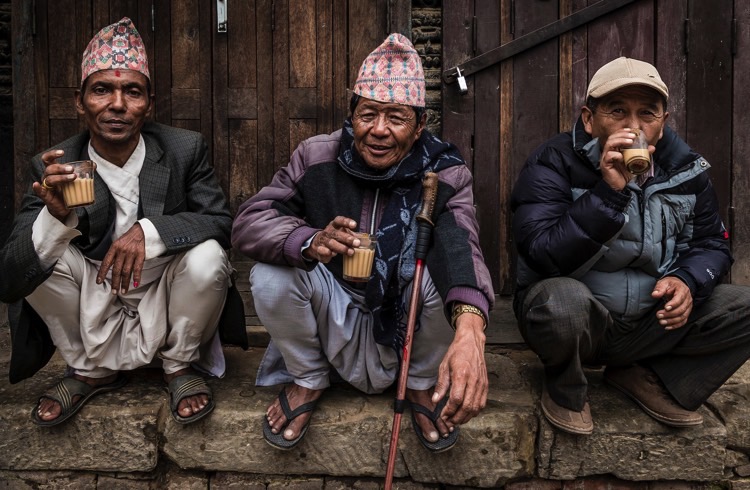6 Basic Business Tools Every Travel Photographer Needs
Whether you're just starting out or have been a photographer for years, photographer Mark Edward Harris shares his essential tools to help grow your business.
 Photo © Jeshoots
Photo © Jeshoots
In one sense, photography is easy because you point the camera and press click; but, on another level, it is no different to any other profession: you’ve got to know the equipment you are using.
Know your gear inside out so you can operate it almost without thinking. At the risk of sounding Zen-ish, become one with the camera.
Photography is also a business, and there are many more tools you need to master other than your camera. So, how well do you know these essential business tools?
- Keep your website updated
- Business cards
- Have a set of promo cards
- Maintain your social media presence
- Help your work get discovered
- Exhibiting your work
Keep your website up to date
Working with pre-existing website templates reinvented my career. For too long I was dependent on others to update my work.
At one point, after I had transitioned from primarily being a black-and-white photographer to focus on color work, I let my website sit idle.
The kick in the derriere came when I lost out on a huge advertising campaign. The client’s feedback surprised me: “We love his work but this campaign is in color.”
I thought, “I haven’t shot a roll of black and white in three years.” But I had been so busy, I hadn’t updated my old website in that long either.
Lesson learned.
Make your business cards look professional
Having a photograph reproduced en-masse on a business card used to look tacky. The quality just wasn’t there.
That changed with Moo. The company refers to its product as “luxury business cards” and it’s not a hyperbole.
The thickness and quality of their paper stock and their reproduction are impressive. Their templates are clean and easy to work with.
Many photographers print different images on the back of their cards and let their potential clients pick the card of their choice.
Have a set of promo cards as leave-behinds
In recent years, I have let my Moo business cards, my books, my Instagram account, and my website represent my work.
In the past, I did high-quality folding promo cards, as well as a 24-page, 4x6 booklet as leave-behinds and mailers.
Leave-behinds are promotional materials that you give to a photo editor, art buyer, curator, or whoever else you show your portfolio to. This reminds the person of your work for when the appropriate assignment, project, or exhibition comes about.
In terms of who to contact for mailing promos or pitching ideas, lists of travel editors at newspapers can be purchased from websites such as www.easymedialist.com.
Finally, remember that your printed material, type treatment and logos should be consistent.
Maintain your social media presence
I was a late bloomer when it came to social media. I still limit it to some degree to keep a low profile because of the more politically-sensitive places I work in around the globe.
But, like an ex-smoker who becomes an enthusiastic advocate against cigarettes, I’ve embraced Instagram. My website has an Instagram button that links the two and, conversely, my website link is on my Instagram profile.
I’ve gotten advice from a number of photographers and other creatives who have expanded their global audience with Instagram.
One of the key items they’re all in agreement on is to “keep your Instagram professional.” If you have an account for sharing personal images with friends and family, keep it that way and create a separate one. That said, your Instagram should be more personal than your website, but not too personal.
In terms of travel photography, occasionally show yourself in action on the road by uploading a selfie, or by having someone show you at work with your camera.
This will help connect you with your audience. I would suggest not posting the self-congratulatory “I was here” shot unless it was taken on the top of Everest or a similar accomplishment.
The adventure end of travel photography (mountaineering, backpacking, kayaking, etc.) is particularly well-suited for Instagram. We can be armchair explorers with photographers such as Chris Burkard – @chrisburkard – who has a following numbering in the millions eager to follow his journeys.
Get discovered with hashtags
In 2011, Instagram added hashtags to help users discover both photographs and the people behind them.
Rather than generic tags, define what the core of the image is and get specific. This is the same for stock photography. Keywording is the key to getting your work seen, and, in the case of stock, purchased.
Some photography-specific hashtags include #photo, #photos, #photographer, #pictures, #photooftheday.
If you’re shooting or converting into black and white you can add hashtags such as #blackandwhite, #bnw, #monochrome. If it’s a portrait: #portrait, #portraits, #portraiture.
Travel photographers are taking advantage of hashtags such as #traveltuesday, #waybackwednesday, AKA #wbw, #throwbackthursday, AKA #tbt, and #flashbackfriday, AKA #fbf to show off some of their greatest hits pulled from the archives, filling in gaps between trips.
You can also hashtag the manufacturers of the equipment you use, as well as significant elements in the photo, which might lead to reposting.
Since Instagram is one big, visually-focused community, following people whose work you genuinely find of interest and commenting on their standout images, as well as responding to your followers when appropriate, will help get you in circulation.
When using Instagram and other social media as a marketing tool to promote your brand, keep the goal of building relationships in mind: Your followers will feel more connected to you and what you’re doing if a bit of humanism comes across through your images and words.
Exhibit your work with themed shows
It’s only since the last century that photography has been considered a serious art form. In large part, we have photographers such as Alfred Stieglitz to thank for this positioning.
Unless you’re having a retrospective of your work displayed at a gallery or museum – or you’re part of a group show – your work will have to have a focus; a visual theme.
Curators and gallerists often base shows on new releases of books. These days, this can include those self-published as long as the subject matter, reproduction, and images themselves warrant it.
Related articles
Simple and flexible travel insurance
You can buy at home or while traveling, and claim online from anywhere in the world. With 150+ adventure activities covered and 24/7 emergency assistance.
Get a quote
No Comments